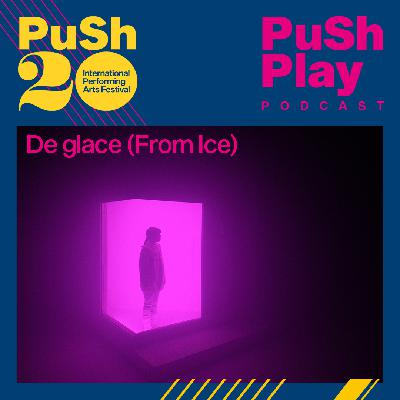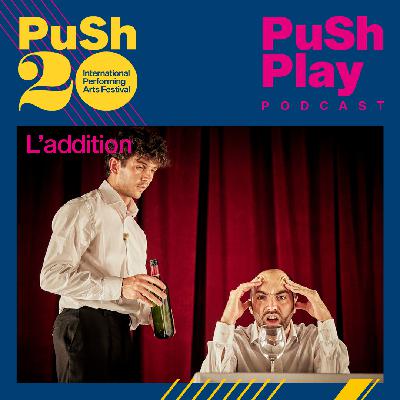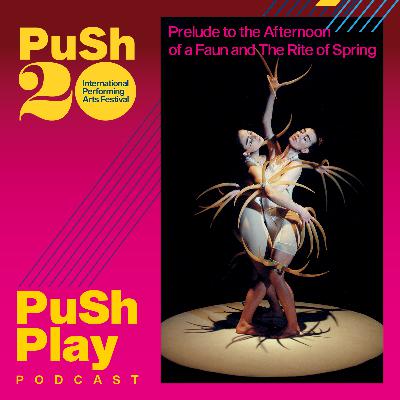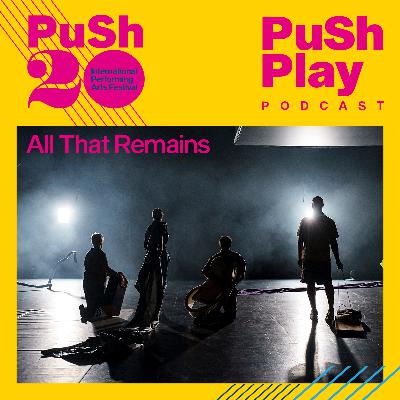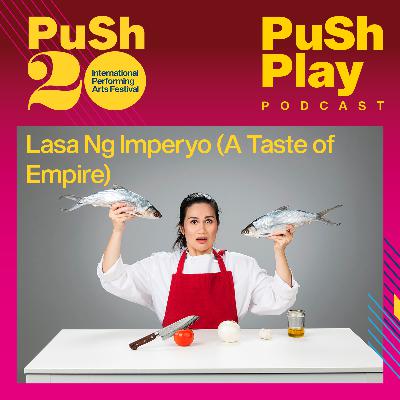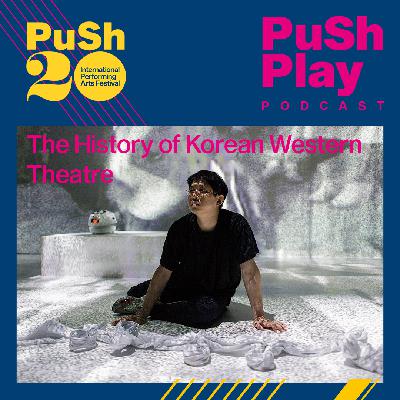Ep. 47 - The Space Between Words (De glace / From Ice)
Description
Gabrielle Martin chats with Anne-Marie Ouellet, whose work, De glace / From Ice, will be presented at the 20th PuSh International Performing Arts Festival. You can catch her show from January 31 to February 2 at the Roundhouse in Vancouver, in association with Théâtre la Seizième and the Vancouver International Children's Festival.
Show Notes
Gabrielle and Anne-Marie discuss:
-
Why did you choose a Nordic tale as inspiration for De Glace?
-
What does it mean to allow the unspeakable to emerge? How do you create an environment that fosters this?
-
Can you describe the visual aesthetic of L'eau du bain
-
What about the various technology and design used for this work, especially audio?
-
What's exciting and interesting about the child's presence on stage?
About Anne-Marie Ouellet
Anne-Marie Ouellet lives and works in Montreal (Quebec), Canada. Her interdisciplinary practice explores matters pertaining to the standards that govern behaviors in the public and private space. Through the elaboration and experimentation of different types of behaviors, Anne-Marie Ouellet creates organizational structures in the form of interventions in collaboration with groups of participants who wear her clothes-uniforms in the urban space. Her work mainly gravitates around the notions of individualism and collectivity, standardization and regimentation.
With an MFA from Université du Quebec à Montréal (2011), Anne-Marie Ouellet has exhibited in Quebec at Musée d'art de Joliette (2022), Le lieu (Quebec, 2019), Verticale (Laval, 2017), Optica (Montreal, 2015), Maison des arts de Laval (2013), Galerie de l'UQAM, Montreal (2011), Manif d'art 4, Quebec (2008), and at the Musée Régional de Rimouski (2005). She also participated in events and artist residencies in Quebec (Sagamie, Alma, (2020), Axenéo7, Gatineau (2016), PRAXIS, Ste-Thérèse (2012) and DARE-DARE, Montreal (2012)), France (FRAC/Alsace, Strasbourg (2006)), and Germany (B_Tour Festival, Berlin (2013) et Oberweilt e.V., Stuttgart (2007)).
Land Acknowledgement
This conversation was recorded on the unceded, stolen and ancestral territories of the Coast Salish Peoples: the xʷməθkʷəy̓əm (Musqueam), Skwxwú7mesh (Squamish) and Səl̓ílwətaɬ (Tsleil-Waututh), colonially known as Vancouver.
Anne-Marie joins the conversation from Ottawa, and recognizes the Anishinaabe Algonquin Nation as the traditional owners of the land and honors their culture and history.
It is our duty to establish right relations with the people on whose territories we live and work, and with the land itself.
Show Transcript
Hello and welcome to Push Play, a Push Festival podcast featuring conversations with artists who are pushing boundaries and playing with form. I'm Gabrielle Martin, Push's Director of Programming, and today's episode highlights opening up the space between words and the light of the Northern sun.
I'm speaking with Anne-Marie Ouellette, one of the lead artists behind a glass, or From Ice in English, which is being presented at the Push Festival January 31st to February 2nd, 2025, with both English and French presentations.
Step into a frozen otherworld where friendship transcends the mortal realm in this mesmerizing tale of two girls bound by an unbreakable connection. Inspired by a Nordic literary gem, From Ice weaves its enchantment through smoke, light, and dreamlike disorientation, as ethereal voices guide spectators through snowy obscurity.
Laudebin was founded by Nancy Boucier, Anne-Marie Ouellette, and Thomas Sineum. Together they have created seven theatrical and installation works featuring original stage designs. Anne-Marie is Professor of Theatre at the University of Ottawa, a researcher-creator.
She specializes in directing non-actors in avant-garde contemporary creations. Here is my conversation with Anne-Marie. And so, just before we dive into talking a bit more about Dick Glass and about Laudebin, I want to acknowledge that I am joining the conversation from the stolen ancestral and traditional territories of the Coast Salish peoples, the Musqueam, Squamish, and Tsleil-Waututh.
I am a settler on these lands. Part of my ongoing education has been reading through the Truth and Reconciliation Commission's final report summary, and also really utilizing the Yellowhead Institute as an educational resource.
We're coming towards the end of 2024, and at the beginning of the year, Yellowhead released their calls to action accountability a 2023 status update so just reviewing the year the year in review with regard to the calls to action and it really you know stood out to me that you know they shared within since eight years in the eight years since the release of the report and the 94 calls to action only 81 or rather 81 remain unfulfilled and zero were completed in 2023 and actually they stopped doing these annual reports because of that kind of dire outcome basically the lack of meaningful progress towards those calls to action and they identified for really key measurement calls to action you know and just identified that without basically meaningful instituted measurement the reality is that we don't have the data necessary to measure whether or not whether or not a lot of the remaining calls to action are complete,
there's no systems to measure it. And yeah, let alone whether Canada is making any meaningful progress towards the completion of these calls to action. So just reflecting on that as we come to the close of 2024.
Yeah. Anne-Marie, where are you joining the conversation from today? Today I'm from my office in Ottawa at Ottawa University. Ottawa is located on the traditional and unceded territory of the Algonquin Anishinaabe nation.
Thank you. And so the glass is based on a Nordic tale. Can you talk about the source of inspiration, why you chose this tale, how you've adapted it or interpreted it for the glass? Yes, absolutely. So yes, the glass is an adaptation of a great classic from Norwegian literature called The Ice Palace and written by Thierry Vessas in 1962.
It's a very beautiful and mysterious novel that tells the story of two young girls called named Sis and Un. Sis and Un are both 11 years old and one day they're just suddenly struck by this intense and powerful connection.
Is it love? Is it friendship or friendship? That's not the point. It's something very stronger, something that changes them deeply and instantly. This age, 11, the age of the character is very important because at 11 you're right on the edge just between childhood and adulthood.
And every experience is very incredibly intense. Every experience feels incredibly intense.

